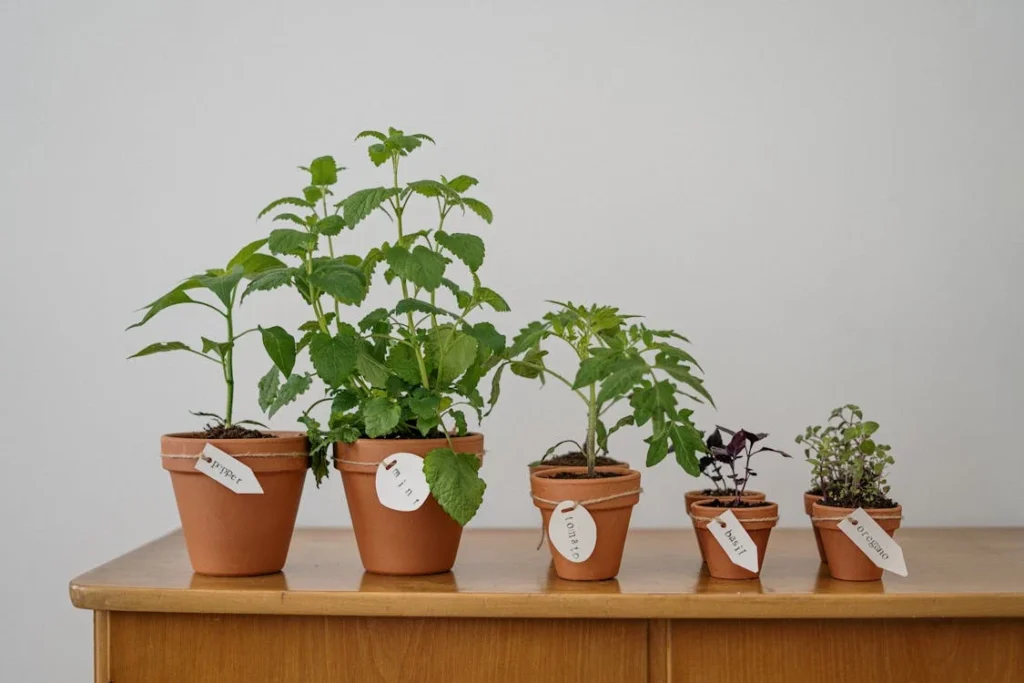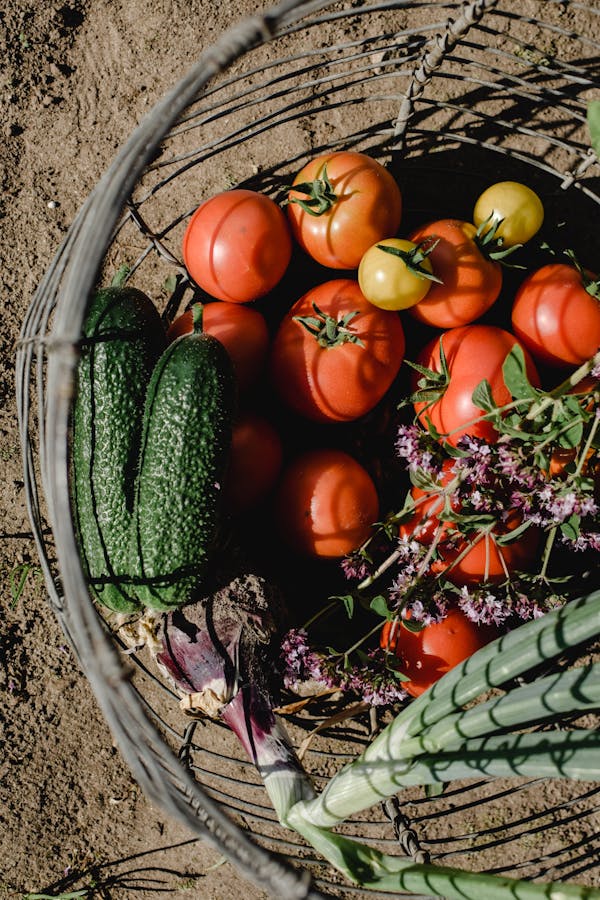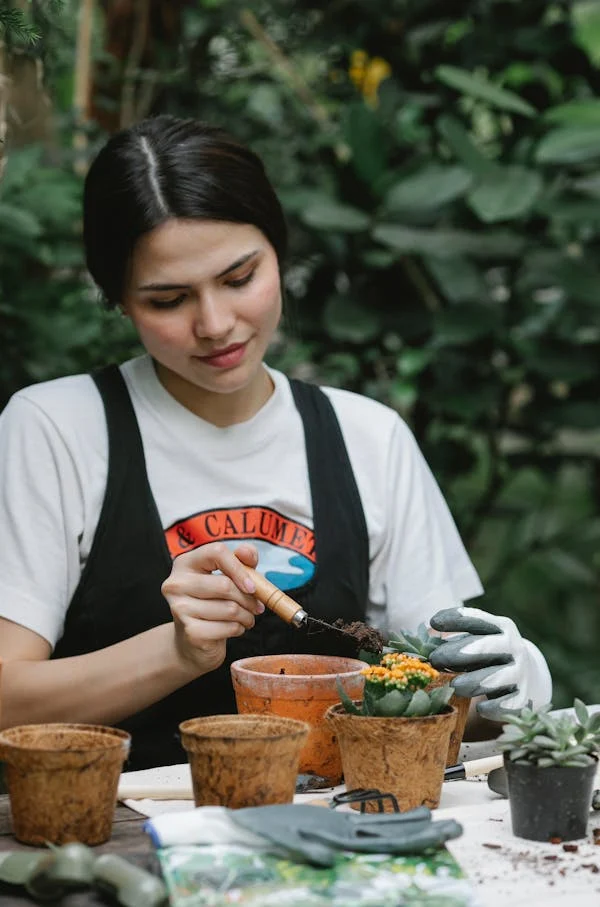Hello, green thumbs and nature lovers! We’re so excited to welcome you into the wonderful world of sustainable gardening! It doesn’t matter if you’re an experienced gardener or just starting out. Making the switch to eco-friendly gardening practices can transform your outdoor space into a flourishing oasis that’s kind to the planet. And we’re here to help you along the way! So, grab your gardening gloves and a cup of herbal tea (homegrown, of course!), and let’s explore the amazing benefits and techniques of sustainable gardening together!

What is Sustainable Gardening?
At its core, sustainable gardening is all about working in harmony with nature to create a thriving garden while minimizing our environmental impact. It’s a holistic approach that prioritizes organic methods, water conservation, soil health, and biodiversity. By adopting sustainable gardening practices, we can grow beautiful, bountiful gardens while doing our part to protect the earth’s precious resources.
The Benefits of Sustainable Gardening
Reduced Environmental Impact
One of the biggest advantages of sustainable gardening is its ability to significantly reduce your environmental footprint. By avoiding synthetic fertilizers and pesticides, you’re preventing harmful chemicals from contaminating our soil, water, and air. Additionally, techniques like composting and water-wise irrigation help conserve natural resources and minimize waste.
Improved Soil Health
Healthy soil is the foundation of a sustainable garden. Organic gardening practices, such as adding compost and using cover crops, help enrich the soil with essential nutrients and beneficial microorganisms. This, in turn, leads to stronger, more resilient plants that can better resist pests and diseases, reducing the need for harmful chemicals.

Increased Biodiversity
Sustainable gardens are designed to attract and support a diverse array of life, from pollinators like bees and butterflies to beneficial insects and birds. By creating a diverse ecosystem within your garden, you’re promoting a thriving, balanced environment that can naturally control pests and support plant growth.
Fresh, Nutritious Produce
Growing your own organic fruits and veggies is not only rewarding but also provides you with an abundance of fresh, nutrient-dense produce. Free from synthetic pesticides and fertilizers, these homegrown goodies are packed with flavor and essential vitamins and minerals.
Cost-Effective Gardening
While the initial investment in sustainable gardening supplies like compost bins and rain barrels may seem daunting, these practices can save you money in the long run. By reducing your reliance on expensive chemical products and minimizing water usage, you’ll see substantial cost savings over time.
Sustainable Gardening Techniques
Permaculture: Gardening in Harmony with Nature
Permaculture is a holistic design system that emphasizes working with nature to create sustainable, self-sufficient gardens. By mimicking natural ecosystems, permaculture gardens incorporate diverse plant species, utilize efficient water management, and promote healthy soil through composting and mulching. This approach results in resilient, low-maintenance gardens that thrive with minimal human intervention.
Organic Gardening: Ditch the Chemicals
Organic gardening is all about growing plants without the use of synthetic fertilizers, pesticides, or genetically modified organisms (GMOs). Instead, it relies on natural methods like crop rotation, companion planting, and the use of organic fertilizers and pest control methods. By avoiding harmful chemicals, you’re protecting the health of your garden, your family, and the environment.
Urban Gardening: Green Oases in the City
Just because you live in an urban area doesn’t mean you can’t embrace sustainable gardening! Urban gardening techniques like container gardening, vertical gardening, and community gardens allow city dwellers to grow their own fresh produce and create pockets of green spaces. Not only does urban gardening provide access to nutritious food, but it also helps combat urban heat island effects, improves air quality, and fosters a sense of community.

Water Conservation Strategies
Sustainable gardens prioritize water conservation, which is essential in a world facing increasing water scarcity. Techniques like mulching, rainwater harvesting, and using drought-tolerant plants can significantly reduce your garden’s water consumption. Additionally, implementing efficient irrigation systems, such as drip irrigation, ensures that water is delivered directly to the root zones, minimizing waste.
Composting: Nature’s Recycling Miracle
Composting is a cornerstone of sustainable gardening, transforming organic waste into nutrient-rich humus that feeds your plants and enriches the soil. By composting kitchen scraps, yard waste, and other organic materials, you’re not only reducing waste but also creating a valuable resource for your garden. Composting also helps improve soil structure, moisture retention, and disease resistance, making it a true win-win for your garden and the environment.
Creating a Sustainable Garden Oasis
Ready to embark on your sustainable gardening journey? Here are some tips to help you get started:
- Start small: Begin with a few raised beds or container gardens, and gradually expand as you gain experience and confidence.
- Observe and plan: Take note of your garden’s sun exposure, soil conditions, and microclimates to help you choose the right plants and design your garden accordingly.
- Prioritize native and heirloom plants: These varieties are well-adapted to your local environment and often require fewer resources to thrive.
- Embrace diversity: Incorporate a mix of plants, from vegetables and herbs to flowers and trees, to promote biodiversity and create a balanced ecosystem.
- Mulch, mulch, mulch: Mulching helps retain moisture, suppress weeds, and adds nutrients to the soil as it breaks down.
- Get creative with repurposed materials: Upcycle items like wooden pallets, tin cans, and old tires into unique planters or garden structures.
- Connect with your local gardening community: Join a garden club, attend workshops, or participate in community garden projects to learn from experienced gardeners and share knowledge.
Sustainable gardening is not only a rewarding hobby but also a powerful way to contribute to a healthier planet. By embracing these eco-friendly practices, you’re cultivating a lush, productive garden while leaving a greener footprint for generations to come. So, what are you waiting for? Grab your tools, get your hands dirty, and start growing your own sustainable garden oasis today!
This really answered my downside, thanks!
So glad this was helpful! Thanks for taking the time to let me know it means a lot. If you ever run into more ‘downsides’ that need solving, don’t hesitate to reach out. Happy to help! 😊
Real excellent info can be found on web site. “The only thing you take with you when you’re gone is what you leave behind.” by John Allston.
you are in reality a good webmaster. The site loading speed is incredible. It sort of feels that you’re doing any distinctive trick. In addition, The contents are masterpiece. you’ve performed a magnificent activity on this matter!